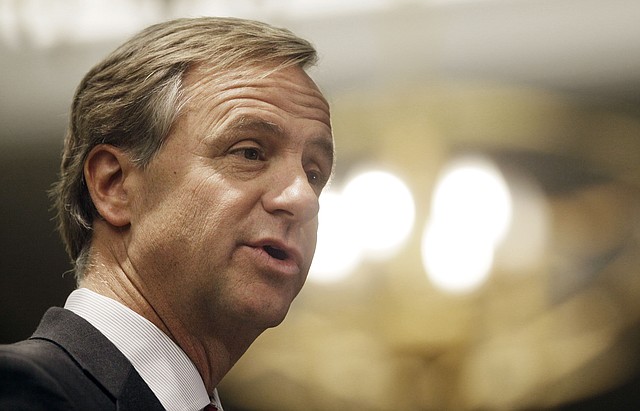Gov. Haslam 'concerned' about foreign-born teachers bill
Wednesday, April 18, 2012
NASHVILLE - Gov. Bill Haslam said he is "concerned" about a just-passed bill capping the number of foreign nationals teaching at public charter schools.
After a prayer breakfast Tuesday at Lipscomb University, Haslam said he is trying to promote science, technology, engineering and math in public education and foreign-born teachers are an important part of the education system.
"History has shown us that, if you look at a lot of technical innovations, a lot of those have come from folks who were born other places beside the U.S. and then they brought their talents here and used that to create good ideas that help Americans and create capital," Haslam said, according to a recording of his remarks by Nashville public radio station WPLN.
"So," Haslam said, "the idea itself is a little concerning to me."
The legislation, sponsored by House Speaker Pro Tempore Judd Matheny, R-Tullahoma, and Senate Republican Caucus Chairman Bill Ketron of Murfreesboro, passed the House on a 63-29 vote Monday. Senators passed it last week by an 18-13 margin.
The bill bars chartering authorities from approving applications for schools that plan to hire 3.5 percent of workers from H1B or J-1 visa programs. Foreign language instructors would be exempted.
Haslam said he wants to review the final version of the bill before making up his mind on whether to sign, veto it or allow the measure to become law without his signature.
"We want to check out the final version and see if this is something that hurts Tennessee, doesn't impact it or helps it," Haslam said.
Last week, the governor did not sign a controversial bill that allows teachers to discuss "strengths and weaknesses" of evolution and other scientific theories. By not signing it, he allowed the bill to become law automatically.
He said at the time that, while he doesn't think the bill changes scientific standards or the state's educational curriculum, he also thought it did not meet his standard of "bringing clarity and not confusion."
He also noted that the bill passed by 3-to-1 margins, meaning it was veto proof.

